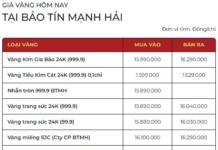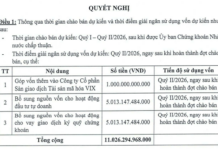
Illustrative image
According to data from Reuters, Chinese refineries have purchased at least 15 cargoes of Russian crude oil for delivery in October and November as Indian demand for this supply declines. This development indicates a shift in global oil flows and could further pressure the Middle Eastern market.
According to analysts and traders, each shipment of Russia’s Ural oil ranges from 700,000 to 1 million barrels. Richard Jones, an expert at Energy Aspects in Singapore, said China had finalized the purchase of 15 shipments last week. Kpler’s report on August 14 also estimated that China ordered about 13 lots of Ural and Varandey oil for October and at least two lots of Ural for November.
The additional purchase of Russian supplies is expected to help China reduce its dependence on more expensive Middle Eastern oil, which is priced $2-3 per barrel higher. However, this also puts pressure on the Dubai market as seasonal demand weakens and price competition intensifies.
For India, which used to be the largest buyer of Russian oil by sea, imports have recently declined sharply, mainly due to narrower discounts. According to Energy Aspects, Indian state-owned refineries have cut back on purchases by about 600,000-700,000 barrels per day. This is the reason for the shift of a part of Russian supplies to China.
However, analysts note that not all of this additional volume is absorbed by China, as Ural oil is not the main feedstock for the country’s large refineries. China mainly imports ESPO oil from Russia’s Kozmino port due to its favorable geographical location, while Ural oil imports so far this year have been at 50,000 barrels per day, according to Kpler data.
Additionally, political factors are being closely watched. US President Donald Trump recently warned of possible secondary sanctions against countries that continue to buy Russian oil. He said Washington could consider such a move within “two to three weeks” if efforts to promote an end to Russia’s actions in Ukraine are unsuccessful.
As the world’s largest oil importer and a key customer of Russia, China is seizing the opportunity to diversify its supply sources. However, balancing economic interests and geopolitical risks will remain a significant challenge for the country’s refineries in the coming months.
“Russia Secures Oil Imports From a Global Oil Giant: At Least 15 Shipments Are on Their Way”
The Asian nation has just purchased at least 15 cargoes of Russian oil, with each shipment ranging from 700,000 to 1 million barrels. This significant acquisition highlights the growing energy demands of the region and showcases the allure of Russian oil exports. With each cargo holding a substantial volume, this development underscores the nation’s strategic move to secure energy resources and cater to its burgeoning energy needs.






































